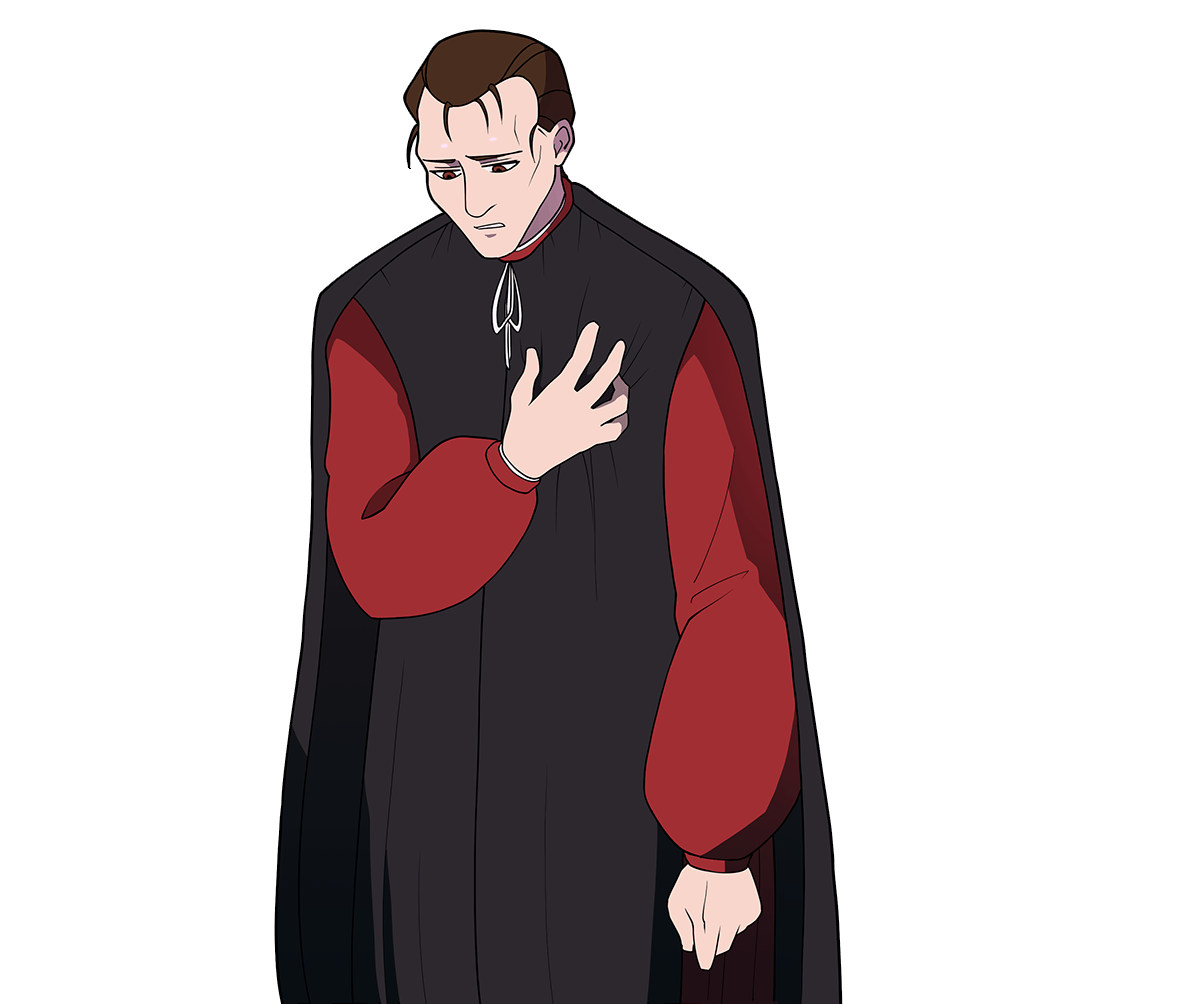
I walk up to famed Italian Renaissance philosopher Niccolo Machiavelli and confront him about his controversial opinions. The Prince must rule by fear, he argues. “NONSENSE!” I shout. Later, with a bit of cajoling, I even get Machiavelli to admit he’s the “patron saint of monsters," a clever line written by developer Connor Fallon for the upcoming indie game Pro Philosopher 2: Governments & Grievances.
“I was trying to picture what it would be like if Machiavelli didn’t believe what he put in The Prince, but [the book] became what everyone associated with him,” Fallon tells Inverse. “What would it be like to be that guy?”

First released in 2013, Socrates Jones: Pro Philosopher mixed absurdist elements of the Japanese courtroom simulator Ace Attorney with the educational texts of a typical college philosophy class. It was a surprise hit, boasting half a million downloads in the decade since. Now, Fallon and the rest of the team are almost ready to reveal their sequel, which shifts the focus from classic philosophy to political, and they’re hoping to make a splash right before another heated U.S. presidential election.
“We’ve said in our trailer, Fall 2024,” Fallon says. “People always joke, oh that means the end of November, right? I personally want to get this out before the American election.”
The Pro Philosopher team has mostly been working on the sequel in their spare time, which explains why it’s taken so long to release. Even Fallon sees this as a side hustle. He and the rest of the team all work at mega-hit studios during the day.
He says that his company isn’t worried about Pro Philosopher competing with first-person shooters and high-budget multiplayer games. “I can scratch a completely different itch. It lets me explore different aspects of game development that I am interested in and makes me a better designer overall.”

Rather than solving murder mysteries or collecting physical evidence, Pro Philosopher is all about challenging abstract logic and dense texts in a fun way. The gameplay involves presenting evidence against philosophers by identifying flaws in arguments and selecting dialogue choices that progress the debate forward. If a player continuously gets a question wrong, the game will drop clues to make the experience more accessible.
While in the original Pro Philosopher, players argued with philosophers like Immanuel Kant and Thomas Hobbes, the sequel takes a political bent and opens up the demo with Machiavelli. Fallon plans to add other extremely influential historical figures, to be announced later. The sequel’s more controversial subject matter might also attract critics, and Fallon notes that while the game isn’t explicitly about current events, players are free to interpret it however they want.
“In this game, we don’t have someone go out and say, ‘Hey, how do you feel about Trump’s convictions, or how do you feel about Hunter Biden’s laptop?’ We don’t do that. But someone could read a line and be like, this makes me think of this,” he says. “That application is just something we have to live with, and I honestly think it’s healthier for the game.”

The developer hopes that playing Pro Philosopher 2 won’t just enforce your own political beliefs, but challenge them by forcing players to argue against an idea they agree with — something he’s already seen happen in the original 2013 game and the sequel’s 20-minute demo.
“The chapter that people struggle with the most is always the one that they agree with the most,” Fallon says. “A big part of the first and second games is questioning your own beliefs. You should understand in what circumstances your ideas fall flat. That doesn’t mean that your ideas are bad, but it’s a frickin’ complicated world out there.”
In Pro Philosopher 2, Machiavelli admits that he’s mainly known for justifying the existence of dictators, which isn’t the legacy he strived for during his life. Whether he likes it or not, the world associates Machiavelli with authoritarianism.
Fallon can relate. Like Machiavelli’s The Prince, once his work is out there, the meaning and reputation it takes on will be out of his hands.
“There’s probably a terrible timeline,” Fallon says, “where I am Machiavelli, 500 years later, and everyone’s played Pro Philosopher and decided that I thought Machiavelli was perfect.”







